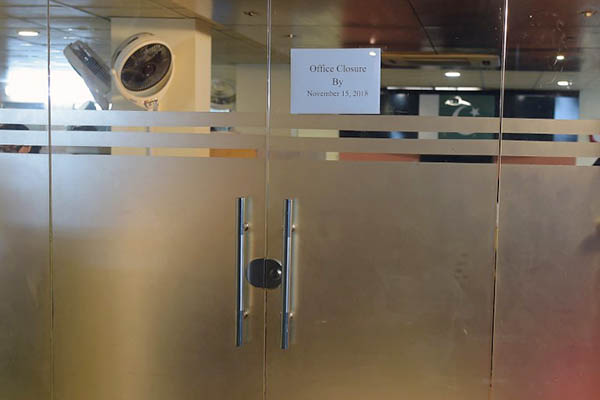
Aamir Qureshi—AFP
NGO workers in Pakistan say they hope to avoid government attention by staying quiet and not commenting on expulsions
Foreign aid groups are being forced out of Pakistan, where the need for their services remains immense, in a move analysts say is fueled by suspicions of foreign spying.
Eighteen international NGOs will leave Pakistan by December after being given notice earlier this month to liquidate their operations within 60 days, spreading uncertainty among humanitarian organizations.
The expulsion follows years of mounting mistrust of aid groups by intelligence agencies, in a country where conspiracy theories are rife and spying accusations against foreigners common. “The intelligence agencies see western NGOs as proxies of foreign spy agencies because they are overly sensitive about the country’s nuclear assets and defense installations,” said military analyst and retired general Talat Masood.
Open Society Foundations, World Vision and several other of the world’s most prominent non-profits are among those given their marching orders, along with charities that have spent decades in Pakistan and invested millions of dollars.
Few groups have dared to comment, even after receiving little or no detail on why they have been asked to shutter their operations and reapply for registration in six months time.
Only ActionAid has denounced the decision, saying the move was “a worrying escalation of recent attacks on civil society, academics and journalists.”
The eviction has ratcheted up pressure on remaining aid groups who worry that speaking out may jeopardize their own operations in Pakistan. “There is a dimension of fear. Other NGOs are hoping that if they don’t make too much fuss, they might be saved,” said one NGO worker, who spoke on condition of anonymity.
The ouster is the culmination of a crackdown that began taking shape years ago. Relations between NGOs and officials began to spiral in the wake of the U.S. commando raid on Pakistani soil that killed Osama Bin Laden in 2011.
Following the operation Islamabad expelled all expatriate staff from Save the Children, accusing the group of fostering links with Shakeel Afridi—a Pakistani doctor who helped the CIA hunt down the Al Qaeda supremo.
Spying allegations have flourished ever since.
“The problem in Pakistan is that the intelligence agencies here are not answerable to anyone,” said Human Rights Commission of Pakistan spokesman I.A. Rehman. “Since Shakeel Afridi was associated with one NGO, our agencies decided to condemn and curb all the other NGOs.”
Visits by intelligence agencies to aid offices are now common, while staff movements are restricted and questions about their motives the norm. The interior ministry increased pressure in 2015, asking foreign NGOs to re-register to ensure the “transparency” of their finances and operations.
Sixty-six groups had their applications accepted, according to the ministry, while the rest were left pending. “You can’t challenge anything. You are really at their disposal. One day, you are acceptable, another one, you won’t be. INGOs are on a really thin line,” said another aid worker.
The groups play a pivotal role in Pakistan, where funding for social programs is minimal, more than 20 million children are out of school and the neo-natal mortality rate is the highest in the world.
At least 11 million people will be affected by the expulsion, along with the “loss” of $130 million in aid, according to the Pakistan Humanitarian Forum.
Pakistan’s newly minted human rights minister Shireen Mazari defended the action, saying authorities are skeptical about the impact of international NGOs.
“A lot of them have been spending money on themselves and… we are not clear about the agenda of a lot of these INGOs,” the minister told AFP. “But if they were helping millions of people, Pakistan would be a very different, developed place.”
“If they fulfill the law, they are working. But if they don’t meet the requirements, then they have to leave,” Mazari added without offering details on how the listed groups might be breaking laws.
Envoys from the U.S., European Union and several other western embassies have jointly lobbied the government to reconsider the eviction.
A diplomat who spoke on the condition of anonymity slammed the “schizophrenia” of officials demanding more money from donors while simultaneously expelling NGOs.
Since 2014, Pakistani companies have benefited from duty and quota exemptions on the European single market, which boosted their exports from 8 to 13 billion euros in 2018. But that status remains conditional on progress in terms of human rights and development.
“This is exactly the kind of bad signal that they could have done without,” said a senior European diplomat, adding Pakistan—with its fragile finances—was playing “with fire.”
